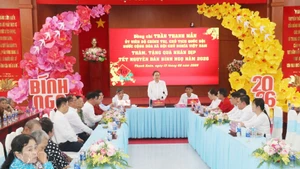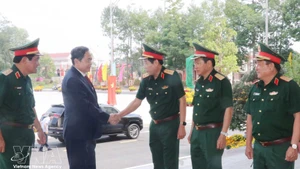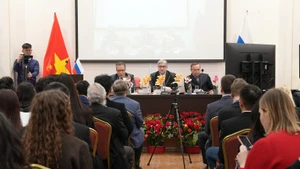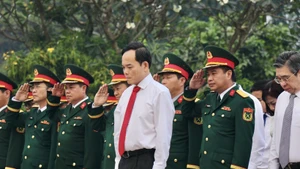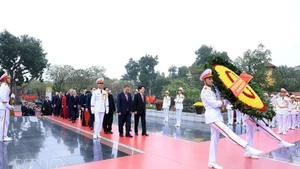After ten years of implementing Directive No.19-CT/TW, awareness of party committees, authorities, officials, party members and people at all levels, about the position and role of vocational training for rural workers has gained positive change.
Nearly ten million rural workers have received vocational training, of which 4.6 million have received vocational training support. Vocational training for people from poor households, near-poor households, people with disabilities, ethnic minorities, female workers, and policy beneficiaries is of concern with 2.1 million people receiving vocational training support.
For rural worker’s vocational training to be in-depth, effective, sustainable and substantive, the Secretariat required party committees, party organisations, authorities, the Vietnam Fatherland Front and other socio-political organisations to focus on leadership, direction and good implementation of the following key tasks and solutions:
Comprehensive innovation, improving the quality and effectiveness of vocational training for rural workers; updating occupations, standardising training content, and certifying the quality of training programs; strengthening education on professional ethics, knowledge of occupational safety and health, law, business, entrepreneurship, soft skills and innovation for rural workers, meeting the requirements of industrialisation and modernisation of agriculture and rural areas.
Party committees, party organisations, and authorities, especially leaders, must regularly lead, direct, and strengthen inspection, and supervision, and attach importance to the quality and effectiveness of vocational training for rural workers; develop vocational training plans suitable to the labour market, socio-economic development plans, vocational training and employment needs of the people, associated with preserving and promoting cultural space and potential rural area tourism; organise vocational training with the model of good farmers in production and business, towards economic restructuring and large manufacturing.
Widely communicating and raising social awareness about the role, position, and importance of vocational training for rural workers for socio-economic development, building new rural areas, and sustainable poverty reduction, improving the intellectual level and lives of rural people; on the guidelines and policies of the Party and State on vocational training for rural workers and the transformation of labour structure and economic structure in the process of industrialisation and modernisation of agriculture and rural areas.
Effectively take advantage of the Fourth Industrial Revolution opportunity. Vocational training for rural workers must be associated with training and fostering to improve people's digital skills, contributing to developing a digital economy and digital society in rural areas; and developing high-quality human resources.
Ensuring resources and conditions to improve the quality and effectiveness of vocational training for rural workers; completing policies to support training for rural workers, especially capital support, means of production, product consumption, and job introduction after vocational training.



